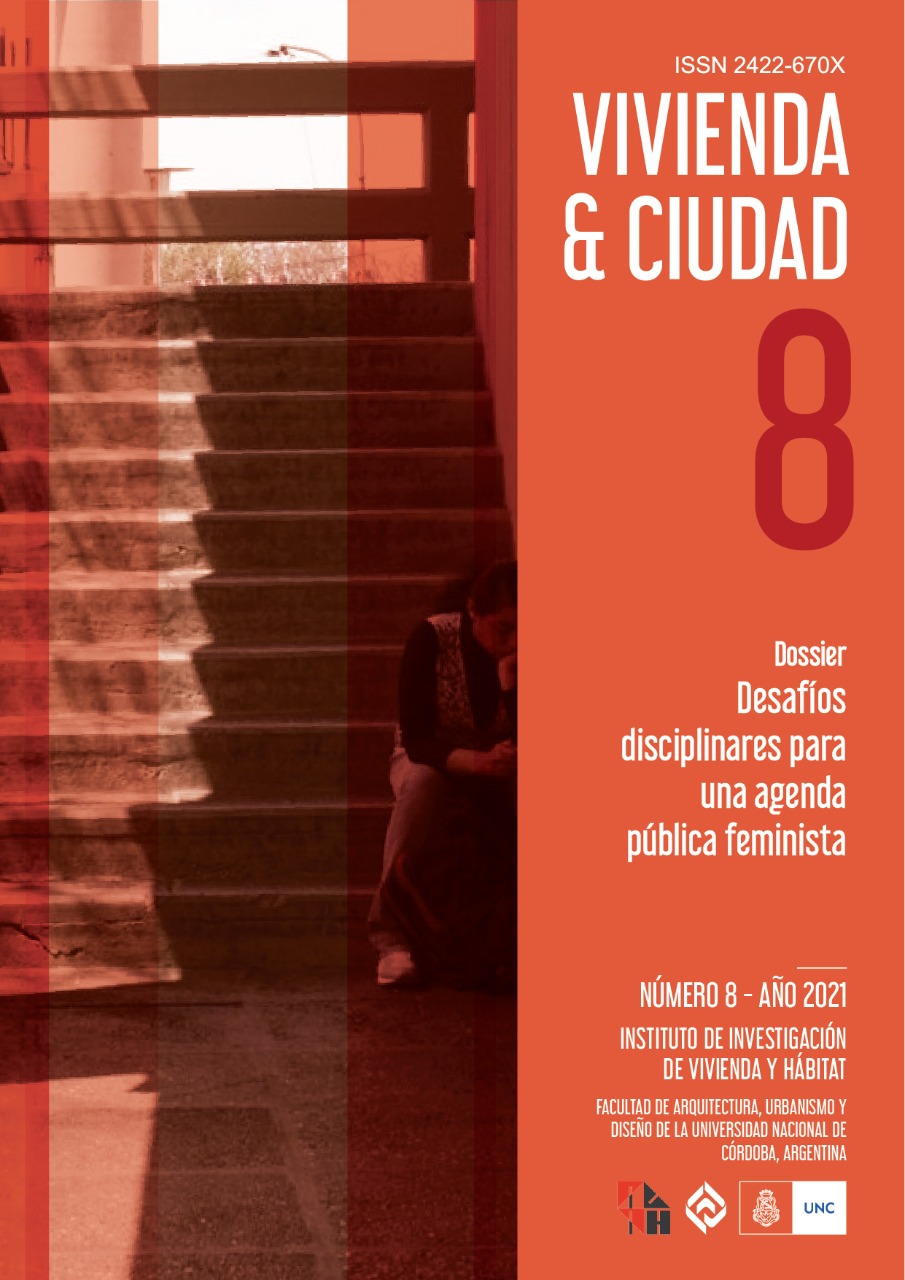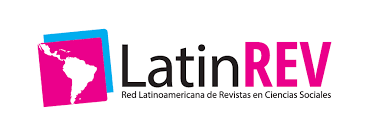From experimentation to socioecological agency.
a gender analysis of the urban cycling conformation.
Keywords:
urban cycling, gender, socioecological agency, sustainable mobility, climate changeAbstract
The current socio-environmental challenges require responding to various objectives at the same time, two problems stand out: climate change and gender inequality. Both relate to the way we inhabit cities. In this context, urban cycling is studied following two objectives: identify which elements influence the gap between women and men in this practice and explore if this type of mobility favors changes in the gender order. A qualitative study was carried out fed by 20 in-depth interviews with cyclists from Mexico City. The conformation process of the cycling practice was reconstructed, obtaining a broad panorama to observe the relationship between gender and mobility over time. Three findings stand out: a) the safe journeys experience and participation in cycling groups establish differences between women and men; b) urban cycling favors the flexibility of gender norms; 3) is a practice that can lead to the emergence of a socio-ecological agency interested in habitability, security, community and care, contents that challenge the gender order. In conclusion, the relevance of promoting this mobility alternative is pointed out, indicating some keys to promote it in an inclusive manner.
References
Bonham, J., & Wilson, A. (2012). Women cycling through the life course: an australian case study. En J. Parkin (Ed.), Cycling and sustainability (pp. 59-81). Emerald.
Bourdieu, P. (2001). La dominación masculina. Anagrama.
Comisión Económica para América Latina. (2019). Panorama social de América Latina. Comisión Económica para América Latina y el Caribe.
Comisión Económica para América Latina. (2020). Informe sobre el impacto económico en América Latina y el Caribe de la enfermedad por Covid-19. https://www.cepal.org/sites/default/files/publication/files/45602/S2000313_es.pdf
Chavez-Rodriguez, L., Curry L., y Treviño, R. (2018). Canarios en la mina de asfalto. Vulnerabilidades y privilegios de género en la movilidad alternativa de Monterrey. En A. de Luca., V. Vázquez., P. Bose., y M. Velázquez (Coords.), Género, energía y sustentabilidad, aproximaciones desde la academia (pp. 3-64). UNAM-CRIM.
Coyotecatl, J., y Díaz, C. (2018). Femibici: experiencias y reflexiones feministas. Ciudades 119, pp. 25-32.
Cobo, R. (1995). Fundamentos del patriarcado moderno. Universitat de Valencia.
Cresswell, T., & Uteng, T. P. (2008). Gendered mobilities: towards an holistic understanding. En T. P. Uteng & T. Cresswell (Eds.), Gendered Mobilities (pp. 1-12). Ashgate.
de la Paz Díaz, M. (2017). La bicicleta en la movilidad cotidiana: experiencias de mujeres que habitan la Ciudad de México. Revista Transporte y Territorio, 16, pp. 112-126.
Deike, P. (2013). Gender and sustainable urban mobility. UN-Habitat.
Díaz, R. y Rojas F. (2017). Mujeres y ciclismo urbano. Promoviendo políticas inclusivas de movilidad en América Latina. BID.
Fosado, E. (2019). La lógica de género en la configuración del discurso climático: un análisis del campo institucional (1994-2015). GénEros 26(26), pp. 7-39
Fosado, E. (2020). Movilidad sustentable, alternativa accesible y robusta en el contexto de la pandemia y del cambio climático. Notas de coyuntura del CRIM. No. 33. CRIM-UNAM. http://doi.org/10.22201/crim.001r.2020.33
Golub, A., Hoffmann, M. L., Lugo, A., & Sandoval, G. (Eds.) (2016). Bicycle justice and urban transformation: biking for all? Routledege.
Grupo Intergubernamental de Expertos sobre el Cambio Climático. (2014). Cambio climático 2014: informe de síntesis. Contribución de los Grupos de trabajo I, II y III al Quinto Informe de Evaluación del Grupo Intergubernamental de Expertos sobre el Cambio Climático [Equipo principal de redacción, R.K. Pachauri y L.A. Meyer (eds.)]. IPCC.
Grupo Intergubernamental de Expertos sobre el Cambio Climático. (2019). Informe especial del IPCC sobre los impactos del calentamiento global de 1,5 ºC con respecto a los niveles preindustriales y las trayectorias correspondientes que deberían seguir las emisiones mundiales de gases de efecto invernadero, en el contexto del reforzamiento de la respuesta mundial a la amenaza del cambio climático, el desarrollo sostenible y los esfuerzos por erradicar la pobreza.
Grupo Intergubernamental de Expertos sobre el Cambio Climático. (2021). Climate Change 2021: The Physical Science Basis. Contribution of Working Group I to the Sixth Assessment Report of the Intergovernmental Panel on Climate Change
Hanson, S. (2010). Gender and mobility: new approaches for informing sustainability. Gender, place and culture, 17(1) pp. 5-23.
Instituto de Políticas para el Transporte y el Desarrollo. (2014). Conteo ciclista 2013. Instituto de Políticas para el Transporte y el Desarrollo.
Instituto Nacional de Estadística y Geografía. (2017). Encuesta Origen Destino en Hogares de la Zona Metropolitana del Valle de México (EOD) https://www.inegi.org.mx/programas/eod/2017/
Instituto Nacional de Estadística y Geografía. (2020). Censo de Población y Vivienda 2020. https://www.inegi.org.mx/programas/ccpv/2020/
Jaitman, L. (2017). Los costos del crimen y de la violencia. Nueva evidencia y hallazgos en América Latina y el Caribe. IDB. https://publications.iadb.org/handle/11319/8133
Jirón, P. (2017). Planificación urbana y del transporte a partir de relaciones de interdependencia y movilidad del cuidado. En M. Nieves y O. Segovia (Eds.), ¿Quién cuida en la ciudad? Aportes para políticas urbanas de igualdad (pp. 405-432). CEPAL.
Jirón, P. y Zunino, D. (2017). Movilidad urbana y género: experiencias latinoamericanas. Revista transporte y territorio, 16, pp. 1-8.
Law, R. (1999). Beyond women and transport: towards new geographies of gender and daily mobility. Progress in Human Geography, 23(4), pp. 567-588. https://doi.org/10.1191/030913299666161864
Martens, K., Piatkowski, D., Krizek, K., y Luckey, K. (2016). Cycling interventions based on social justice. En A. Golub, M. Hoffman, A. Lugo y G Sandoval (Eds), Bicycle justice and urban transformation: biking for all? (pp. 87-99). Routledge.
Mejía, L. y Soto, P. (2020). A review on the influence of barriers on gender equality to access the city: A synthesis approach of Mexico City and its Metropolitan Area. Cities, 96 pp.102439. https://doi.org/10.1016/j.cities.2019.102439
Organización de las Naciones Unidas- Departamento de Asuntos Económicos y Sociales. (2018). World urbanization prospects: the 2018 revision. https://population.un.org/wup/Publications/Files/WUP2018-Report.pdf
Organización de las Naciones Unidas - Entidad para la Igualdad de Género y el Empoderamiento de la Mujer. (2017). Diagnóstico sobre la violencia contra las mujeres y las niñas en el transporte público de la CDMX.
Organización de las Naciones Unidas - Programa de las Naciones Unidas para el Medio Ambiente. (2019). Perspectivas del medio ambiente mundial GEO 6: planeta sano, personas sanas. Resumen para responsables de políticas. Programa de las Naciones Unidas para el Medio Ambiente. PNUMA.
Organización de las Naciones Unidas - Programa de Naciones Unidas para los Asentamientos Humano. (2016). Urbanización y desarrollo: futuros emergentes. Reporte de las ciudades del mundo.
Ortiz, S. (2020). Informe Mujeres y personas no binarias en bici. Estudio de Movilidad Ciclista en Barcelona desde una perspectiva feminista. http://www.punt6.org/wp-content/uploads/2020/07/Informe-Final-Dones-Bici_-Castella%CC%80.pdf
Parkin, J. (wd.). (2012). Cycling and sustainability. Emerald.
Plumwood, V. (1993). Feminism and the Mastery of Nature. Routledge.
Ramos, J. (2021). El ciclismo en las catástrofes urbanas. Cletofilia. https://cletofilia.com/el-ciclismo-urbano-en-las-catastrofes-urbanas/
Secretaría del Medio Ambiente de la Ciudad de México. (2015). La visión de la Ciudad de México en materia de cambio climático al 2025. Secretaría del Medio Ambiente de la Ciudad de México. Gobierno de la CDMX.
Schoner, J., Lindsey, G. & Levison, D. (2014). Factors associated with the gender gap in bicycling over time. Papel de trabajo. https://conservancy.umn.edu/handle/11299/179837
Soto, P. (2019). Análisis de la movilidad, accesibilidad y seguridad de las mujeres en tres Centros de Transferencia Modal (CETRAM) de la Ciudad de México. http://dx.doi.org/10.18235/0002122
Soto, P. (2011). La ciudad pensada, la ciudad vivida, la ciudad imaginada: Reflexiones teóricas y empíricas. La ventana, 4(34) pp.7-38
Suárez, M. (coord.) (2018). Plan Bici CDMX. México: BID- IGU-UNAM-SEDEMA.
Sustrans. (2018). Inclusive city cycling. Women: reducing the gender gap. https://www.sustrans.org.uk/sites/default/files/file_content_type/bikelifewomen2018_reducinggendergap_0.pdf
Uteng, T. P. (2012). Gender and Mobility in the Developing World. World Bank.
Downloads
Published
Issue
Section
License
Copyright (c) 2021 Ericka Fosado Centeno

This work is licensed under a Creative Commons Attribution-ShareAlike 4.0 International License.
Authors who publish in this journal agree to the following terms:
a. Authors retain copyright and guarantee to the journal the right to be the first publication of the work as well as licensed under a Creative Commons Attribution-ShareAlike 4 license.
b. Authors may separately establish additional agreements for non-exclusive distribution of the version of the work published in the journal (e.g., placing it in an institutional repository or publishing it in a book), with an acknowledgement of its initial publication in this journal.
c. Authors are permitted and encouraged to disseminate their work electronically (e.g., in institutional repositories or on their own website) before and during the submission process, as this may result in productive exchanges, as well as earlier and greater citation of published work (See The Effect of Open Access).
d. 4.0 International Creative Commons Attribution-ShareAlike 4.0 License.










